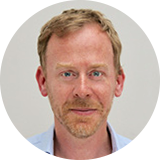Are you a lazy lawyer? Why not?!
 |
Bill Gates* is often credited with saying, "I will always choose a lazy person to do a difficult job because a lazy person will find an easy way to do it."
Lazy people are efficient. We should be more like them.
I have to confess my training as a lawyer didn’t teach me much about efficiency. It's easy to see why. In private practice, where most of us started our careers, the commercial model encourages people to work for a long time. I'm not saying that law firms are deliberately inefficient but there's inevitably less focus on it when, not only is there no penalty for inefficiency, there's potentially a reward.
Doing even more with even less
No surprise then that lawyers can find it quite an adjustment when moving in-house - I know I did. Legal is usually seen as a cost line, not a revenue generator. The driver is, therefore, to minimise legal resource and maximise its effectiveness in order to increase profitability - i.e. "do more with less".
During this period of economic uncertainty, GCs and their legal teams are under even more cost pressure - they therefore have to do even more with even less. As such, efficiency will only get more important.
Efficiency framework
So how do you create efficiency? In an in-house legal team, the main levers you can pull relate to how you spend your human resource - i.e. your and your team's time. The better you spend it, the fewer people you need in your team and so the lower your cost to the business (or conversely the more value the team can add).
While I was in-house, I developed a simple framework to help with this. I trained my team on it, asking them to run everything they did through it and come to me if it prompted them to think about doing things differently. We ended up changing a lot of things, from small tweaks to a couple of large-scale tech projects. As a result, we were able to keep up with the demands of a rapidly growing business while keeping the team small and staff-members motivated.
So here's my 'lazy lawyer' efficiency framework.
|
For every task, ask yourself (in order): 1. Should it be done at all? 2. If yes, can it be done by technology? 3. If no, can it be done more efficiently by someone cheaper?
4. If no to all of the above, OK I'll do it. |
You can also break down tasks into different elements. It may be that some things can be done by technology or someone cheaper but others only by you. That's fine - you're still creating efficiency.
Plainly can help
At Plainly, we can help you particularly with steps 2 and 3. Our platform automates many routine legal tasks. For a GC this ensures that both non-lawyers and junior lawyers can safely self-serve their basic legal needs, but for many other departments the same principles apply. Plainly can help you identify and refine the routine processes, tasks and paperwork that slow business down and use up valuable (and expensive) resources. Talk to us if you'd like to know more.
---
* Actually the quote should be attributed to Frank B. Gilbreth who studied the movements of bricklayers in the early 20th century. He realised lazy workers eliminated unnecessary movement and reduced fatigue and so were the model of efficiency.